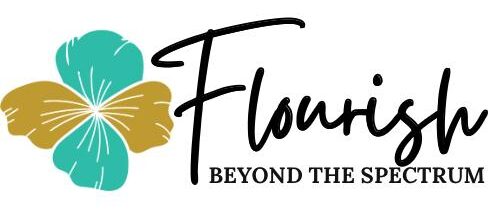Reducing Stress and Anxiety in Autism: The Benefits of Mind-Body Therapies

Emotional dysregulation, stress, and anxiety are common challenges faced by individuals with autism. These emotional imbalances can make everyday activities feel overwhelming and affect overall well-being. Fortunately, mind-body therapies offer powerful, natural ways to help individuals with autism find emotional balance and calm. Techniques like mindfulness, yoga, and deep-pressure therapy can help regulate emotions and promote a sense of security, providing valuable tools for managing daily stress.
The Connection Between Mind and Body
The mind and body are deeply interconnected. Stress and anxiety in the mind can lead to physical symptoms, while physical discomfort or dysregulation can worsen emotional struggles. Mind-body therapies aim to create harmony between emotional and physical states, reducing anxiety and promoting relaxation.
For individuals with autism, emotional dysregulation may stem from sensory sensitivities, communication challenges, or an inability to cope with environmental stressors. Holistic mind-body practices can help individuals feel more in control of their emotions by teaching self-regulation techniques that work with the body’s natural responses.
Holistic Techniques for Emotional Balance
Mind-body therapies provide non-invasive, calming methods to manage stress and anxiety. Here are three effective holistic approaches for promoting emotional well-being in individuals with autism:
1. Mindfulness Practices
Mindfulness is a practice that encourages individuals to focus on the present moment without judgment. For those with autism, mindfulness techniques such as deep breathing, guided imagery, or focusing on sensory experiences can help reduce anxiety and improve emotional regulation.
Simple mindfulness activities, like breathing exercises, can be incorporated into daily routines. For example, practicing deep breathing for a few minutes each day can help individuals calm their minds and bodies when they feel overwhelmed.
2. Yoga
Yoga combines physical movement, breath control, and meditation to promote mental and physical relaxation. The gentle stretching and poses in yoga can help release tension, reduce stress, and improve body awareness. For children or adults with autism, yoga can be a fun and engaging way to build physical strength and emotional resilience.
There are many yoga programs specifically designed for individuals with sensory or communication challenges, making it accessible for a wide range of needs. Yoga poses can also be adapted to suit each individual’s preferences and abilities.
3. Deep-Pressure Therapy
Deep-pressure therapy uses physical pressure on the body to provide a calming and grounding effect. Many individuals with autism find comfort in deep pressure, which can come from weighted blankets, tight hugs, or specialized compression garments. This form of therapy helps reduce anxiety, improves focus, and provides a sense of security.
Weighted blankets, for example, can be used during relaxation or sleep to help individuals with autism feel more secure and calm. Deep-pressure therapy can be especially helpful for those who experience sensory overload or have difficulty calming down in stressful situations.
Daily Practices for Emotional Wellness
Incorporating mind-body therapies into daily routines can make a significant difference in emotional regulation for individuals with autism. Here are a few simple practices that can be added to everyday life:
- Daily Mindfulness: Practice deep breathing or guided meditation for a few minutes each day to reduce anxiety and promote emotional balance.
- Yoga Time: Set aside time for gentle yoga exercises that focus on stretching and breathing to release tension.
- Weighted Blankets: Use a weighted blanket during relaxation or sleep to provide comfort and reduce stress.
A Path to Emotional Balance
Mind-body therapies offer a natural, holistic way to support emotional well-being for individuals with autism. By integrating mindfulness, yoga, and deep-pressure therapy into daily routines, you can help create a calming environment where emotional dysregulation is more manageable. These techniques empower individuals with autism to better navigate their emotions, reducing stress and anxiety while promoting relaxation.
🌿 Looking for more holistic support?
✅ Book a 15-minute free consultation with Dr. Lyonie Charles.
✅ Follow our Facebook page for more nutrition tips and gut health insights.
✅ Join our community to connect with other parents on similar journeys.
Together, we can help individuals with autism find emotional balance and thrive! 💙

